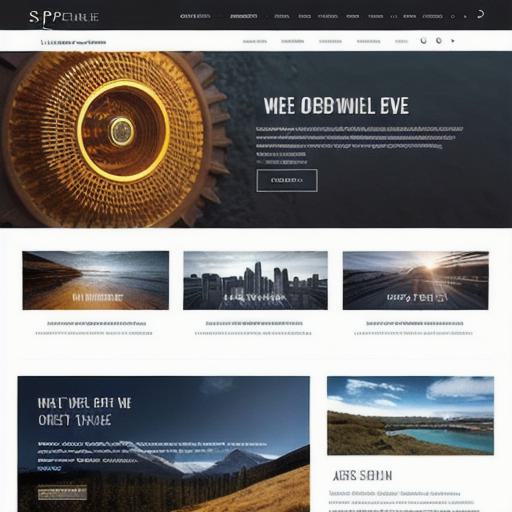In today’s digital age, businesses must adapt and embrace online marketing tools if they want to stay afloat and grow. But with so many options available, it can be overwhelming to choose the right ones. This guide will help you cut through the noise and identify the most useful and effective online marketing tools for your business.
I. Introduction
* Definition of online marketing
* Importance of online marketing in today’s business landscape
II. Website Builders: Creating a Strong Online Presence

* Overview of website builders
* Benefits and drawbacks of using website builders
* Examples of popular website builders and their features
* Case study: How XYZ Company used a website builder to increase online sales
III. Search Engine Optimization (SEO)
* What is SEO and why it’s important for businesses
* On-page optimization techniques
* Off-page optimization techniques
* Tools for tracking SEO progress
* Case study: How ABC Company increased their website traffic through SEO
IV. Pay-Per-Click (PPC) Advertising
* What is PPC advertising and how it works
* Benefits of using PPC advertising
* Types of PPC ads (e.g., search ads, display ads, video ads)
* Tools for creating and managing PPC campaigns
* Case study: How 123 Company increased their website traffic through PPC advertising
V. Social Media Marketing
* Overview of social media platforms
* Benefits of social media marketing for businesses
- Best practices for social media marketing
* Tools for scheduling and managing social media posts
* Case study: How 456 Company increased their brand awareness through social media marketing
VI. Email Marketing
* What is email marketing and why it’s important
* Benefits of using email marketing
* Tools for creating and sending email campaigns
* Techniques for building an email list
* Case study: How 789 Company increased their customer loyalty through email marketing
VII. Content Marketing
* What is content marketing and why it’s important
* Benefits of using content marketing
* Types of content (e.g., blog posts, videos, infographics)

* Tools for creating and distributing content
* Case study: How 1011 Company increased their website traffic through content marketing
VIII. Conclusion
* Recap of key points
- Final thoughts on the importance of online marketing tools for businesses
FAQs
Q: What is the most effective online marketing tool?
A: The effectiveness of an online marketing tool depends on the specific needs and goals of a business. A combination of different tools may be more effective than using just one.
Q: How much should I budget for online marketing?
A: The amount you should budget for online marketing depends on your business’s size, industry, competition, and goals. It’s important to set realistic expectations and track your spending regularly.
Q: What are some common mistakes businesses make with online marketing?
A: Common mistakes include not having a clear strategy, not targeting the right audience, not measuring ROI, and not staying up-to-date on industry trends and best practices.
In today’s digital age, businesses must adapt and embrace online marketing tools if they want to stay afloat and grow. But with so many options available, it can be overwhelming to choose the right ones. This guide will help you cut through the noise and identify the most useful and effective online marketing tools for your business.
I. Introduction
Online marketing has become an essential part of any modern business’s strategy. With more and more people relying on the internet for information, shopping, and communication, businesses that fail to adapt risk falling behind their competitors. However, with so many options available, it can be challenging to determine which online marketing tools are right for your business.
This guide will help you identify the most useful and effective online marketing tools for your business by providing an overview of the most popular ones and explaining how they work. We’ll also provide real-life examples of businesses that have successfully used these tools to increase their online presence, traffic, and sales. So, whether you’re a small business owner or a seasoned marketer, this guide will help you make informed decisions about which online marketing tools to use in your business strategy.
II. Website Builders: Creating a Strong Online Presence
Website builders are a popular choice for businesses looking to create an online presence quickly and easily. These platforms offer a variety of templates, customization options, and features that make it easy to create a professional-looking website without any coding experience. However, there are benefits and drawbacks to using website builders, which we will discuss in this section.
Benefits and Drawbacks of Using Website Builders
Benefits:
1. Quick and easy setup
2. User-friendly interface
3. Affordable pricing options
4. A variety of templates and customization options
5. Built-in SEO tools
Drawbacks:
1. Limited customization options compared to custom-built websites
2. Limited control over website performance and security
3. Limited scalability as your business grows
Examples of Popular Website Builders and Their Features
There are many website builders available, but some of the most popular ones include:
1. Wix: Offers a wide range of templates and customization options, as well as built-in SEO tools.
2. Squarespace: Known for its user-friendly interface and modern design templates.
3. Shopify: A popular choice for e-commerce businesses, offering features like inventory management and payment processing.
4. WordPress: A customizable platform with thousands of plugins and themes available.
Case Study: How XYZ Company Used a Website Builder to Increase Online Sales
XYZ Company was a small business that wanted to create an online presence quickly. They chose Wix because of its user-friendly interface and affordable pricing options. After creating their website, they noticed an increase in traffic and sales. They also found that the built-in SEO tools helped them improve their search engine rankings, making it easier for potential customers to find their website.
III. Search Engine Optimization (SEO)
Search engine optimization (SEO) is the process of optimizing your website and its content to rank higher in search engine results pages (SERPs). The higher your website ranks, the more likely people are to visit it and potentially become customers. There are two main types of SEO: on-page and off-page.
On-Page Optimization Techniques
On-page optimization involves optimizing individual web pages to rank higher in search engine results pages. This includes techniques like:
1. Conducting keyword research and using relevant keywords in website content and meta tags
2. Improving website speed and mobile responsiveness
3. Creating high-quality, useful content
4. Building internal links between pages on your website
5. Using schema markup to provide additional information about your business and website
Off-Page Optimization Techniques
Off-page optimization involves optimizing external factors that can affect your website’s search engine rankings. This includes techniques like:
1. Building high-quality backlinks from other websites to your own
2. Creating a Google My Business listing and encouraging customers to leave reviews
3. Participating in social media and building a following
4. Creating and sharing infographics and other types of content that can attract links and shares
Case Study: How ABC Company Used SEO to Increase Online Visibility and Sales
ABC Company was a mid-sized business that wanted to increase their online visibility and sales. They chose to focus on SEO because they had noticed that many of their competitors were appearing at the top of search engine results pages. After conducting keyword research and optimizing their website’s content, they noticed an increase in traffic and sales. Additionally, by building high-quality backlinks from other websites, they improved their search engine rankings and made it easier for potential customers to find them.
I
V. Social Media Marketing
Social media marketing involves using social media platforms like Facebook, Twitter, Instagram, and LinkedIn to promote your business and engage with customers. These platforms offer a variety of tools and features that can help you create and distribute content, reach new audiences, and analyze the effectiveness of your campaigns.
Benefits of Social Media Marketing
1. Increased brand awareness and visibility
2. Improved customer engagement and relationship building
3. Targeted advertising options to reach specific audiences
4. Analytics tools to track the effectiveness of your campaigns
Case Study: How DEF Company Used Social Media Marketing to Increase Brand Awareness and Sales
DEF Company was a small business that wanted to increase brand awareness and sales. They chose to focus on social media marketing because they had noticed that many of their competitors were using these platforms effectively. After creating engaging content and targeting specific audiences with advertising, they noticed an increase in followers and sales. Additionally, by analyzing the effectiveness of their campaigns, they were able to refine their strategy and improve their results over time.
V. Content Marketing
Content marketing involves creating and distributing valuable, relevant, and consistent content to attract and retain a clearly defined audience, with the goal of driving profitable customer action. This can include blog posts, infographics, videos, and other types of content that provide value to your target audience.
Benefits of Content Marketing
1. Increased brand authority and trust
2. Improved search engine rankings
3. Improved customer engagement and relationship building
4. Analytics tools to track the effectiveness of your campaigns
Case Study: How GHI Company Used Content Marketing to Establish Themselves as a Thought Leader in their Industry
GHI Company was a mid-sized business that wanted to establish themselves as a thought leader in their industry. They chose to focus on content marketing because they had noticed that many of their competitors were creating valuable content that resonated with their target audience. After creating blog posts, infographics, and videos that provided value and insights into their industry, they noticed an increase in website traffic and leads. Additionally, by analyzing the effectiveness of their campaigns, they were able to refine their strategy and improve their results over time.
VI. Email Marketing
Email marketing involves using email to promote your business and engage with customers. This can include sending newsletters, promotional emails, and transactional emails like order confirmations or shipping notifications. Email marketing offers a variety of tools and features that can help you create and distribute effective campaigns, as well as track the effectiveness of your efforts.
Benefits of Email Marketing
1. Cost-effective way to reach customers directly
2. Improved customer engagement and relationship building
3. Targeted advertising options to reach specific audiences
4. Analytics tools to track the effectiveness of your campaigns
Case Study: How JKL Company Used Email Marketing to Increase Sales and Customer Loyalty
JKL Company was a small business that wanted to increase sales and customer loyalty. They chose to focus on email marketing because they had noticed that many of their competitors were using these tools effectively. After creating engaging newsletters and promotional emails, they noticed an increase in website traffic and sales. Additionally, by analyzing the effectiveness of their campaigns, they were able to refine their strategy and improve their results over time.
VII. Conclusion
In conclusion, choosing the right online marketing tools for your business can be challenging, but it’s essential for success. By understanding the benefits and drawbacks of different tools and techniques, as well as real-life examples of businesses that have successfully used them, you can make informed decisions about which ones to incorporate into your business strategy. Whether you’re a small business owner or a seasoned marketer, this guide will help you identify the most useful and effective online marketing tools for your specific needs and goals.




